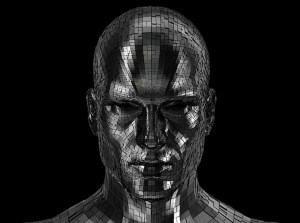They knew weather conditions in the gulf were unstable, but her grandfather checked the maps and figured they were far enough south to avoid the brunt of any storms. So, they went to the dockside cafe and stocked up on fruit and sandwiches and bottled water, and they took the boat out anyway.
Motoring down the Anclote River to St. Joseph’s sound they made up stories about the Original Occupants (that’s what he called native Americans) and their guardianship of the freshwater springs that dotted the coast.
“Sweet water,” she mused. “It doesn’t make you young but keeps you alive. Maybe we got the Fountain story all wrong.”
“How so?” His voice seemed craggier than usual.
“What if it wasn’t the fountain of youth? What if it was the fountain of life?”
“You might have something there,” her grandfather agreed. “Maybe you could make a story about it.”
He always said it that way. Make a story. Not write one. And why not? Storytelling was as much construction as imagination after all.
“Maybe I could,” she agreed.
They kept the engine going until they were out past Anclote Key and into the Gulf of Mexico. Then they hoisted the sail and switched to wind power until they’d reached the secret beach.
They anchored the boat in shallow water and half-swam / half waded to shore, floating their cooler between them.
They picnicked under a palm tree and then she swam while her grandfather napped. It used to be that he would fish during these excursions and bring home the catch for her grandmother to clean and cook. But Grandma had left them several months before and it wasn’t the right time of year for grouper, anyway.
Before dusk, they returned to the boat, turning on the lights so they’d be visible. Again, they stuck to wind power on the gulf, heading home with her at the wheel.
Just outside the mouth of the river, her grandfather said, “It’s time.”
“Oh, Grandpa!”
The old man pulled a black plastic box out of a storage chest and leaned over the gunwale of the boat. He opened the lid and poured the gray-white contents into the water.
“Your grandmother and I met at a solstice celebration,” her grandfather said. “She made me promise to say goodbye to her on the first one after her death.”
He looked down into the water. “Swim with the dolphins, my love. I miss you.”
There were no words she could have uttered so she merely slung her arm across the old man’s shoulders and kissed his stubbly cheek. He smelled of tar and salt and peppermint, and there were times she wanted to wrap that scent around her like a blanket.
The motored back to the harbor in silence, tied the boat, and made to leave.
“You go home, honey,” her grandfather said. “I’ll bunk down below tonight.”
Reluctantly, she left him. But somehow, she knew that next summer solstice, her grandparents would be reunited.
Written for Brief #20 of Like the Prose 2021: Solstice


























